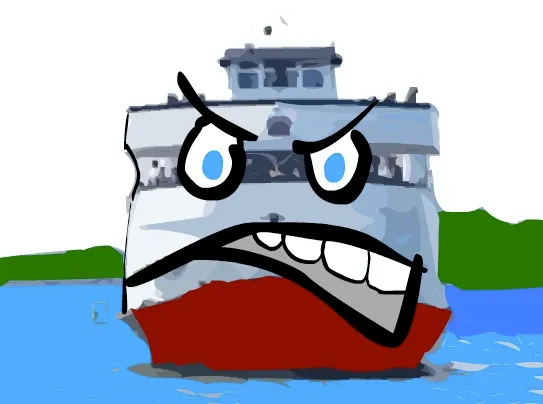In 1845 explorer John Franklin set off to explore the Northwest Passage. The adventurer and his ships (the HMS Erebus and the terribly-named HMS Terror) were never seen again – until very recently, that is. Canadian Prime Minister Stephen “I’m Great At Boats” Harper announced today that after actively searching for six years researchers have finally recovered one of Franklin’s long-lost vessels using sonar and underwater vehicles. Yay?
It’s not surprising that Franklin’s expedition didn’t end well – as recently as 2008, the Northwest Passage wasn’t a “passage” at all, but just ice. In recent years, though, the tangible impact of global warming has been evident in the Passage’s newfound accessibility; in the near future, cruise ships may even be able to use the formerly blocked-off route to sail between the Atlantic and the Pacific. As exciting as that news may be for Stephen Harper (whose interest in retrieving the historical artifact was likely motivated more by claiming Canada’s sovereignty over a disputed region and valuable shipping route than anything else), in the long run, it’s a scary indicator of the way climate change has already altered our planet.
According to the BBC, British archeologist British William Battersby called Canada’s find “the biggest archaeological discovery the world has seen since the opening of Tutankhamun’s tomb almost 100 years ago,” and don’t get me wrong – I’m almost as excited from a nationalistic and historical standpoint as Battersby is. But considering what Franklin’s ship reveals about our changing planet, celebrating the artifact outside of a geographical and environmental context is just plain dangerous.
(via Gizmodo, image via SfWeekly‘s Matt Smith)
- Texas museum removes exhibit on climate change
- Wyoming schools won’t teach climate change
- NASA warns rise of sea levels is now unstoppable
Are you following The Mary Sue on Twitter, Facebook, Tumblr, Pinterest, & Google +?









Published: Sep 9, 2014 07:00 pm